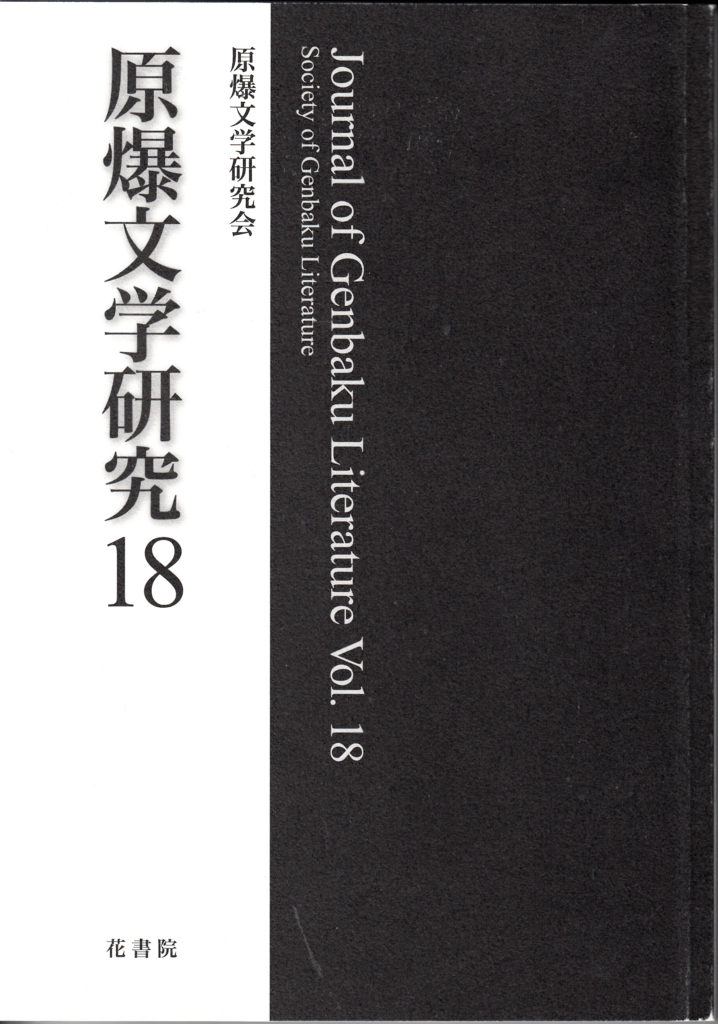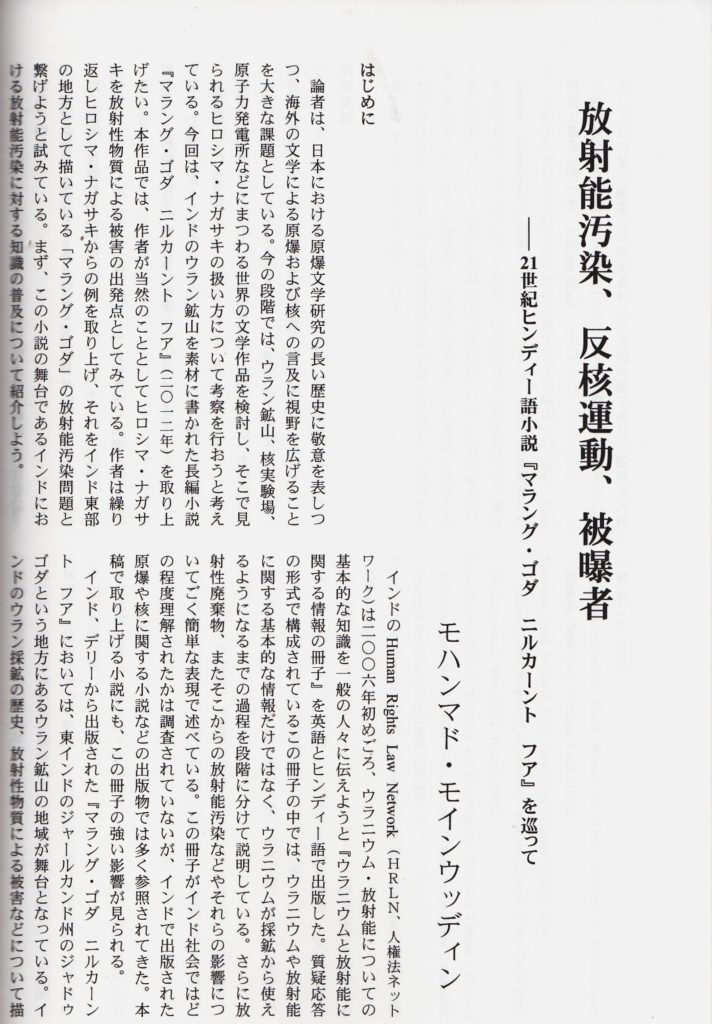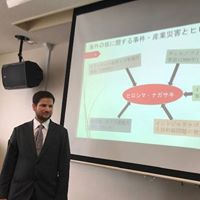Our co-researcher’s results ②
Mr. Mohammad Moinuddin, LinguaHiroshima’s co-researcher in Hindi, published the results of his study on atomic bomb literature in Genbaku Bungaku Kenkyu (Journal of Genbaku Literature) No. 18, Society of Genbaku Literature, December 2019.
Mr. Moinuddin’s study is titled “Radioactive Contamination, Anti-nuclear Movements and the People Exposed to Radiation: With Reference to 21st Century Hindi Literature “Marang Goda Neelkanth Hua.” The study is a critique of Mahua Maji’s 2012 novel “Marang Goda Neelkanth Hua.” The novel’s subject is the anti-nuclear movement led by indigenous people in East India.
Moinuddin notes that while the United States has produced many literary works on the issues of nuclear sites, there are fewer produced in European countries and almost none in India and Pakistan. Maji’s novel was published after the Fukushima Nuclear Accident on March 11, 2011, and has been reprinted twice. Moinuddin surmises that Maji’s novel has been a great influence on the approximately 400 million native Hindi speakers.
Half of Maji’s novel, approximately 200 pages, refers to atomic bomb survivors in Hiroshima and Nagasaki. Sagen Laguri, the main character, is the leader of an anti-uranium mining movement. Laguri was able to fully grasp the reality of casualties caused by radioactive substances after reading about Hiroshima and Nagasaki. Moinuddin concludes that Maji’s novel successfully informed the lay public about the conditions of Marang Goda and the effects of radioactive contamination by including the actual history of the bombings. We hope that her novel will be published in other languages, including Japanese.



